World
Out in the world: LGBTQ news from Europe and Asia
Two teenagers sentenced to life in prison for murdering trans teenager in England

UNITED KINGDOM

On Friday, the judge presiding over the trial of two teenagers convicted in the brutal stabbing death of transgender teenager Brianna Ghey, a crime that shook northern England, sentenced the pair to life in prison.
Manchester Crown Court Justice Amanda Yip sentenced Scarlett Jenkinson to life in prison with a minimum of 22 years and Eddie Ratcliffe to life with a minimum of 20 years, noting that the pair, both 16, took part in a “brutal, planned murder” that was “sadistic in nature” and motivated by “hostility towards Brianna because of her transgender identity.”
Ghey was a 16-year-old trans girl, TikTok creator and a “beacon of positivity,” according to her friends. She would often film videos set to music while showing off her makeup or walking in a park. It was in one of these parks that her life was taken in February of this year.
In the immediate aftermath of her murder, countless people mourned for her and decried the senseless violence. Her TikToks became makeshift memorials with millions of likes and views.
Many people considered the idea that anti-trans sentiment and rampant transphobia in the U.K. may have played a role in her murder.
PinkNewsUK reported that as he read his victim impact statement at Manchester Crown Court, Brianna’s father, Peter Spooner, described Jenkinson and Ratcliffe as “pure evil.”
“Now my world has been torn apart. Justice may have been done but no amount of time in prison will be enough for these monsters,” he said.
“I cannot call them children because that makes them sound naive or vulnerable, which they are not — they are pure evil. Brianna was the vulnerable one.”
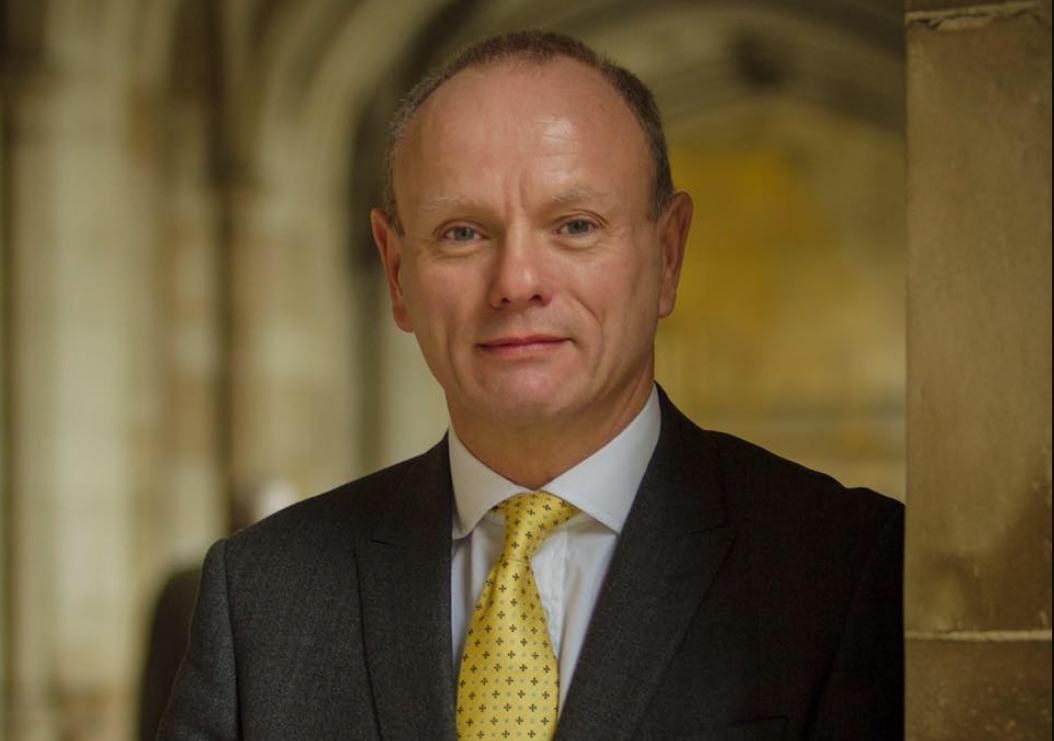
British Conservative Party politician Michael Freer announced he has decided to step down at the next general election after an arson attack on his constituency office and receiving death threats.
PinkNewsUK reported that the 63-year-old Tory, who currently also serves as Parliamentary Under Secretary of State for Courts and Legal Services, has faced a series of death threats and was even targeted by Ali Harbi Ali, the man who murdered Southend West MP David Amess in 2021.
Freer revealed that he and his staff began wearing stab vests at public events after they learned Ali had watched his Finchley office before stabbing Amess at a constituency surgery. An arson attack in December was the “final straw.”
Speaking to Sky News, Freer said: “There comes a point when the threats to your personal safety become too much. I was very lucky that actually on the day [of Ali’s attempted attack] I was due to be in Finchley, I happened to change my plans and came into Whitehall.
Otherwise, who knows whether I would have been attacked or survived an attack. He said he came to Finchley to attack me.”
There have been other threats the MP said including from a group calling themselves Muslims Against Crusades, “about coming to stab me.”
According to PinkNewsUK Freer joins a number of MPs who have said they will not be standing at the next general election, which is expected later this year.
FRANCE
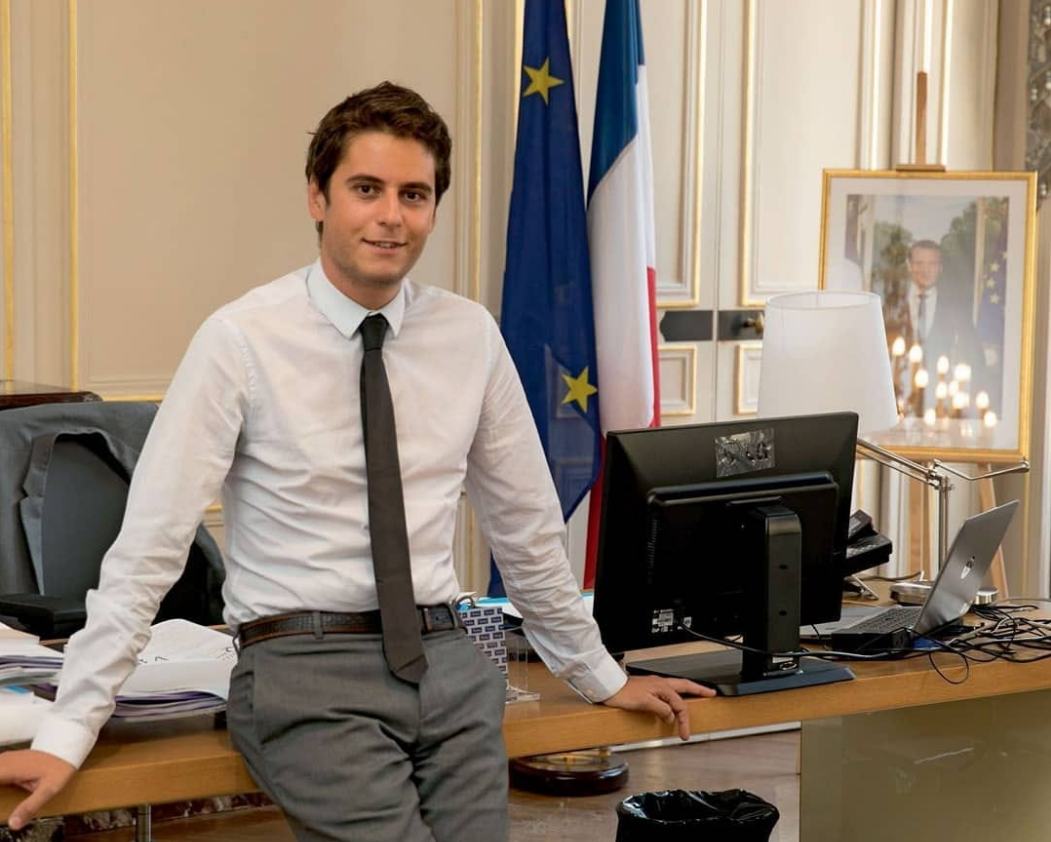
Prime Minister Gabriel Attal in a speech before the National Assembly, the lower house of France’s Parliament, told legislators that “mindsets are evolving” on LGBTQ issues in the country.
In his first keynote address Attal said that France was “tearing itself apart just 10 years ago over same-sex marriage,” he added, whereas “being French in 2024 means … being able to be prime minister and openly gay.” This was “proof our country is moving and mindsets are evolving,” the prime minister noted.
It was the first time the 34-year-old prime minister has referenced his sexual orientation so directly since his installation earlier this month, which was hailed by LGBTQ groups as “a powerful symbol,” Agence France-Presse reported.
But Attal’s sexual orientation has caused barely a ripple in wider French public debate that has more often seen him attacked as a carbon copy of his polarizing boss, French President Emmanuel Macron.
SPAIN
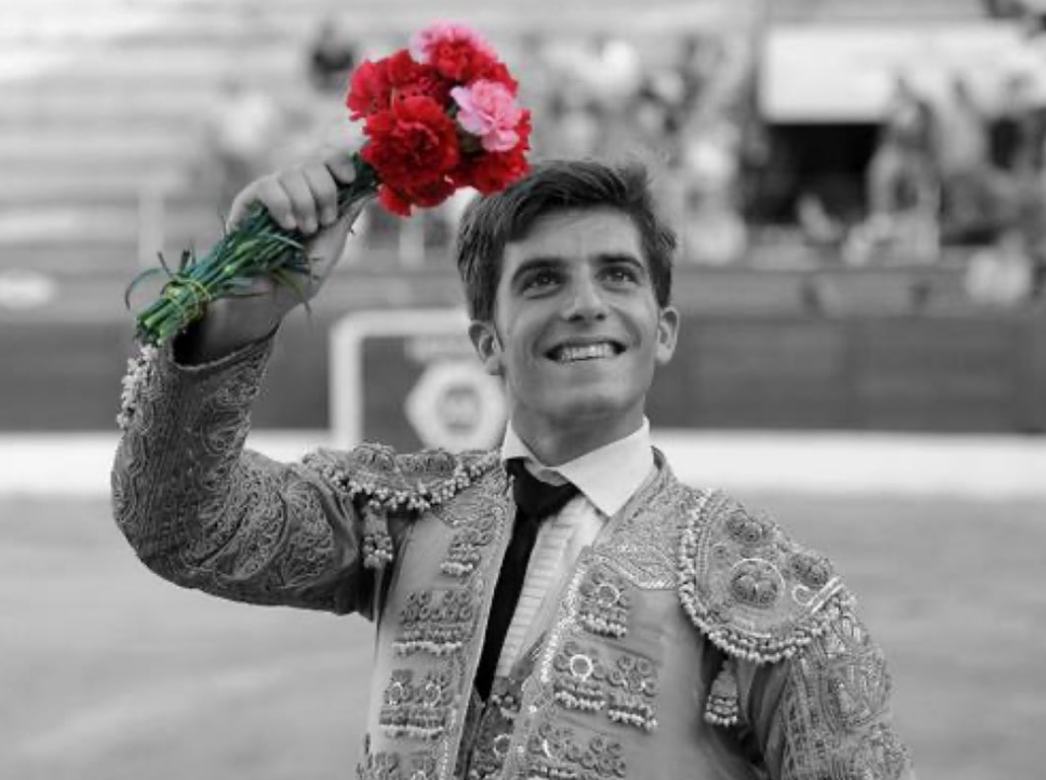
Mario Alcalde made history in the country’s bullfighting sport last month, but not as a matador. The 31-year-old native of Madrid’s Alameda de Osuna neighborhood, where he grew up, revealed in an interview with El Mundo that he identifies as pansexual.
“I’m pansexual. I identify strongly with the LGBTI+ flag. Every person has their taste. I fall in love with the person inside, not their gender,” he said adding, “I follow my own rhythm. My tastes, both political and sexual, are not normal in the bullfighting world.”
Alcalde declined to discuss the politics of being queer further, instead noting his decision to be open about his sexuality and being the first out LGBTQ matador in a sport known for its toxic masculinity occurred after being treated for a dislocated shoulder and broken clavicle after an accident in Madrid’s Las Ventas bullring.
He explained that after a doctor saw he was “wrapped in a rainbow flag dedicated to the Mario Alcalde LGBTQ+ Bullfighting Club” he decided to come out.
Despite confessing that he felt “everyone in the LGBTQ+ community is anti-bullfighting,” the pansexual matador is making it his life’s goal to start a bullfighting club in Madrid’s LGBTQ neighborhood, Chueca.
“Once you confess who you are and the person gets to know you, it’s nice because they begin to see it in a different light,” he said.
“I have to do things so that the community gets involved. They’ll come to watch me fight. At first, they’re very closed minded, there’s too much ignorance and they don’t know what bullfighting is all about.”
He hopes that coming out will not bring negative attention but claims “I don’t care what anyone else thinks.”
In addition to his endeavors in the ring as a matador, he also earns a living as a baggage handler at Adolfo Suárez Madrid–Barajas Airport. “I don’t depend on anyone, that’s why I also work in the airport,” he said.

A painting commissioned by Semana Santa Hermandades, a group of Catholic lay people who organize and perform public religious acts during Seville’s annual Holy Week observances, has drawn severe critique from Spanish conservatives.
The painting, unveiled at the end of January by renowned artist Salustiano García who told the media in attendance at the ceremony that his version of a resurrected Jesus painted against a flat red background was modeled after his son, Horacio.
Spanish social media users derided the work creating memes poking fun at the image or defended the artist, while political conservatives including Pablo Herfelder García-Conde of the ultraconservative Catholic organization Instituto de Política Social labeled the image an “aberration” and a “sexualized and effeminate” Jesus.
Javier Navarro of Spain’s far-right Vox party described the image as a provocation and “homosexual.”
In response to the criticism, the painter told the Spanish newspaper ABC that his portrayal of Jesus was “gentle, elegant and beautiful” and created with “deep respect.”
“To see sexuality in my image of Christ, you must be sick,” he said, insisting there was “nothing” in his painting that “has not already been represented in artworks dating back hundreds of years.”
PORTUGAL
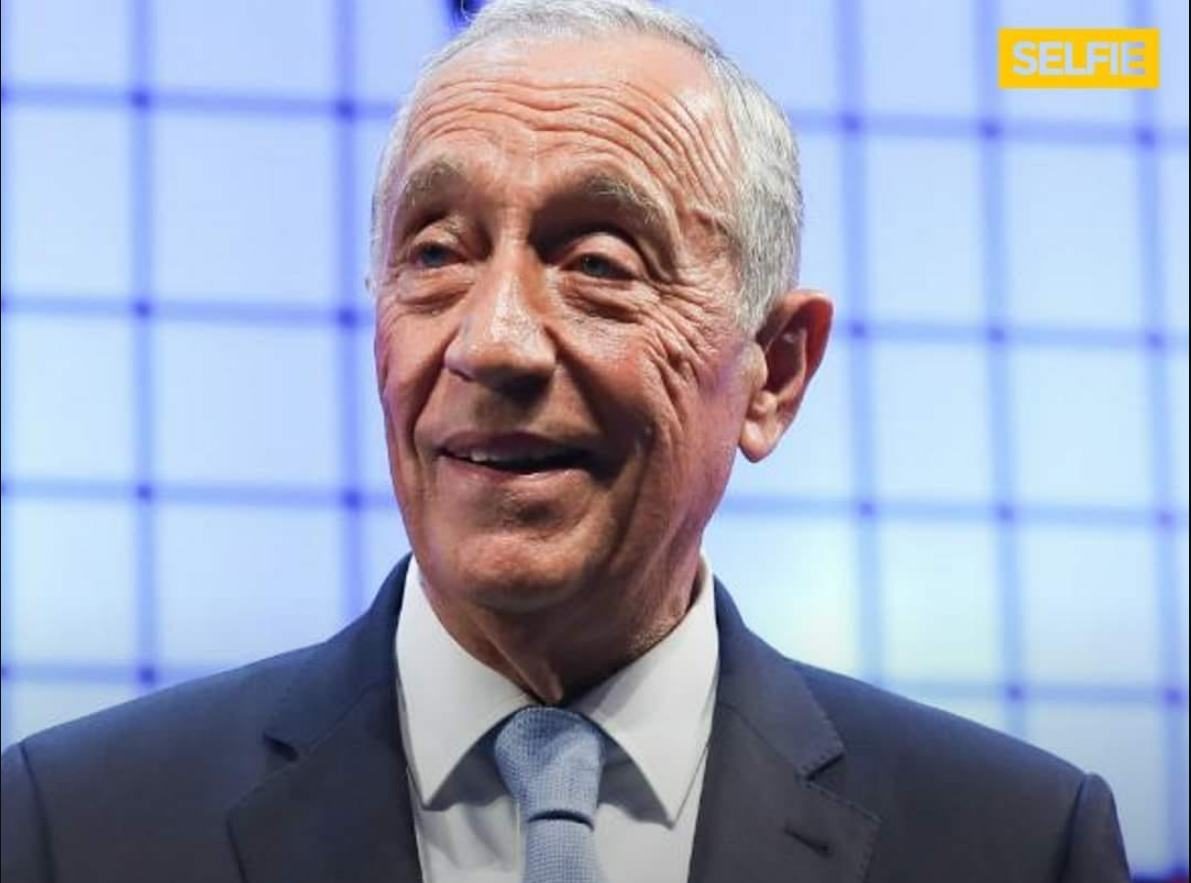
In a statement released on his official website at the end of January, Portuguese President Marcelo Rebelo de Sousa announced that he had vetoed the law that established the measures that schools had to apply to guarantee the right to self-determination of gender identity for students in schools.
De Sousa, a right-leaning conservative, said that he rejected the choice of a neutral name “because it considers that the decree does not guarantee a balance with respect to the essential principle of personal freedom.” He added that law which required schools to adopt to apply the law that establishes gender self-determination “do not sufficiently respect the role of parents, guardians, legal representatives and associations formed by them, nor does it clarify the different situations based on age.
The president returned the law to the Portuguese Parliament to “consider introducing more realism” in an issue in which there is little value in affirming principles that clash, due to their abstract values, with people, families and schools.”
FINLAND
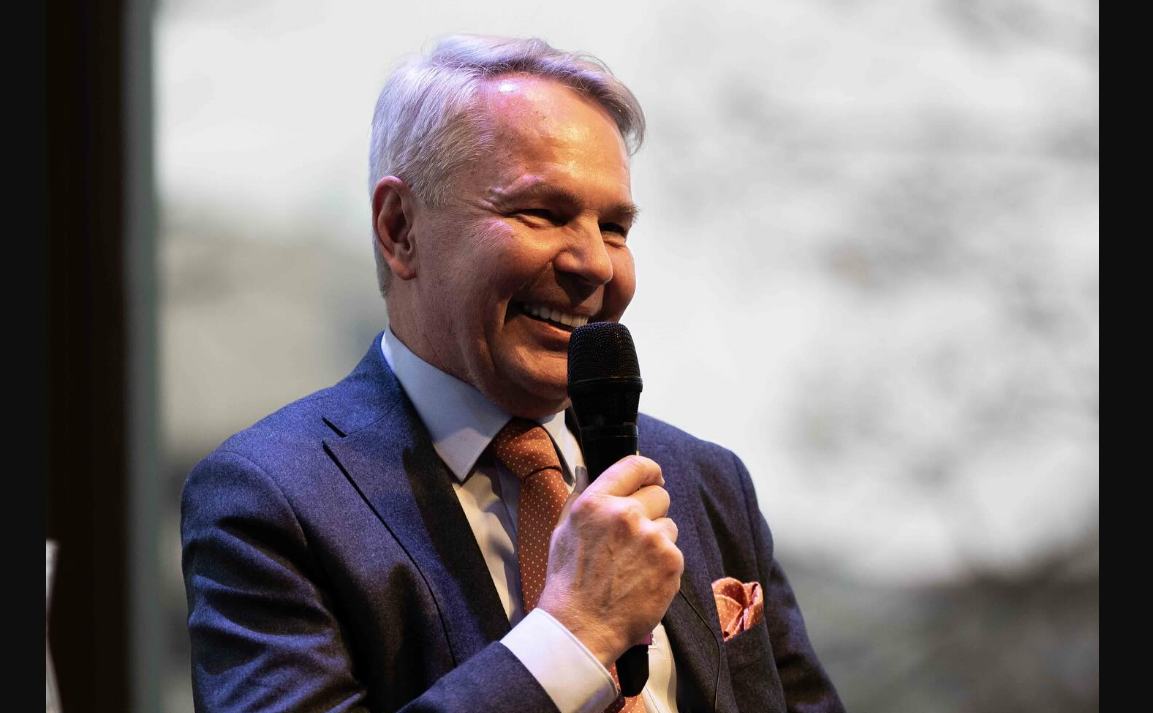
The 65-year-old former Finnish Foreign Minister Pekka Haavisto is now in a tight three-way run off race seeking to become the country’s next president. Haavisto, who is openly gay, has been running as an independent against former Prime Minister Alexander Stubb and Parliamentary Speaker Jussi Halla-aho.
The primary contest, according to Euronews, is between Stubb, who likely gained 27.3 percent of the initial voting and Haavisto at 25.8 percent, in the runoff elections on Feb. 11. Finnish public broadcaster YLE reported Stubb, 55, and Haavisto were the main contenders in the election. About 4.5 million eligible voters picked a successor out of nine candidates to hugely popular President Sauli Niinistö, whose second six-year term expires in March. He wasn’t eligible for re-election. The initial voter turnout was calculated to be 74.9 percent.
The Guardian UK reported that as a part of his campaigning across Finland, Haavisto has previously warned that country must crack down on hate speech against minorities — both as a pressing social issue and a national security issue — he said in other ways he has seen signs of progress during his time on the campaign trail.
“You could see that people could never imagine that gay men could be elected. But this has been changing.”
This is a critical time for the Nordic nation. Finland’s president holds executive power in formulating foreign and security policy. Euronews noted that abandoning decades of military nonalignment in the wake of Russia’s invasion of Ukraine, Finland became NATO’s 31st member in April, much to the annoyance of President Vladimir Putin of Russia, which shares a 832 mile border with the country.
NATO membership, which has made Finland the Western military alliance’s front-line country toward Russia, and the war raging in Ukraine a mere 621 miles away from Finland’s border have boosted the president’s status as a security policy leader.
As foreign minister, Haavisto signed Finland’s historic accession treaty to NATO last year and played a key role in the membership process along with Niinistö and former Prime Minister Sanna Marin.
RUSSIA

The Sormovskiy District Court in Nizhny Novgorod, a city on the Volga River that is 265 miles east of the Russian capital city, sentenced a woman to five days in jail for wearing earrings in the shape of a frog with a rainbow. This was one of the first two convictions since Russia’s draconian anti-LGBTQ ruling by the country’s Supreme Court
Anastasia Yershova was found guilty by a judge of publicly displaying symbols of an “LGBTQ extremist” organization prohibited under a ruling by Russia’s Supreme Court this past November that “the international LGBTQ movement” is “extremist,” and any symbols including Pride flags would be considered illegal. Yershova’s attorney noted to Shkulev Media that the judge didn’t define “symbol” in handing down his sentence.
According to multiple Russian media outlets, the case against Yershova was brought after an unidentified man threatened to turn her and a companion into the police for wearing a Ukrainian flag pin and rainbow earrings in a public cafe. After she refused the man filmed the encounter and then uploaded the video on Russian social media where it went viral.
Russian security police tasked with combating “extremism” arrested Yershova and brought charges. The press office for the Sormovsky District Court confirmed the account in the charging documents and the sentence but refused further comment.
The Krasnooktyabrsky District Court in Volgograd earlier last week found a man identified only as Artyom P. guilty of “exposing the symbols of an extremist organization” after he had shared a photo of the rainbow flag online in a social media post.
The court’s press office said that the man had pleaded guilty and said he had made a “stupid” gesture. The court stated that he was sentenced to pay a fine of 1,000 rubles ($11.04.)
MALAYSIA

Malaysia’s Communications Minister Fahmi Fadzil told reporters during a press conference this past week that a scheduled concert by British singer-songwriter and musician Ed Sheeran would go on as planned at Kuala Lumpur’s Bukit Jalil National Stadium on Feb. 24.
A senior Muslim cleric and leader in the Malay Archipelago had publicly rebuked the government for issuing permits to Sheeran over the latter’s allyship for the LGBTQ community globally.
“As ‘mufti,’ it is my responsibility to urge the Malaysian government, through the relevant ministries (Communication Ministry and Digital Ministry) to revoke the permit for the concert immediately,” the South China Morning Post reported Wan Salim Mohd Noor said to Sinar Harian, a Malay-language daily newspaper.
Salim said Malaysia, as a nation with a predominantly Muslim population, should not allow concerts featuring artists who support “sinful” activities. He also urged all Muslims in the country to boycott the concert.
The minister told reporters the Islamic Development Malaysia Department and the Home Ministry are involved in discussions to grant approvals for concert permits by foreign acts.
“I have spoken about this to the Central Agency for Application for Filming and Performance by Foreign Artists (Puspal) and I take note of the suggestion by the mufti [Noor] on this,” Fadzil said.
“However, Jakim and the Home Ministry are among the 16 agencies involved in the discussions to approve applications for gigs by foreign artists, through the Puspal committee. Therefore, thorough vetting would have been done by all these agencies,” he said at a press conference on Wednesday.
“We take note of the views but we have a process. We will look into the matter if there is a need. At this time, there are no changes in the approval for the concert.”
Additional reporting by PinkNewsUK, Agence France-Presse, El Mundo/The Olive Press, Rádio e Televisão de Portugal, Euronews, The Guardian UK, Fontanka, the BBC and the South China Morning Post.
Africa
LGBTQ groups question US health agreements with African countries
Community could face further exclusion, government-sanctioned discrimination

Some queer rights organizations have expressed concern that health agreements between the U.S. and more than a dozen African countries will open the door to further exclusion and government-sanctioned discrimination.
The Trump-Vance administration since December has signed five-year agreements with Kenya, Uganda, and other nations that are worth a total of $1.6 billion.
Kenyan and Ugandan advocacy groups note the U.S. funding shift from NGO-led to a government-to-government model poses serious risks to LGBTQ people and other vulnerable populations in accessing healthcare due to existing discrimination based on sexual orientation.
Uganda Minority Shelters Consortium, Let’s Walk Uganda, the Kenya Human Rights Commission, and the Center for Minority Rights and Strategic Litigation note the agreements’ silence on vulnerable populations in accessing health care threatens their safety, privacy, and confidentiality.
“Many LGBTQ persons previously accessed HIV prevention and treatment, sexual and reproductive health services, mental health support, and psychosocial care through specialized clinics supported by NGOs and partners such as USAID (the U.S. Agency for International Development) or PEPFAR,” Let’s Walk Uganda Executive Director Edward Mutebi told Washington Blade.
He noted such specialized clinics, including the Let’s Walk Medical Center, are trusted facilities for providing stigma-free services by health workers who are sensitized to queer issues.
“Under this new model that sidelines NGOs and Drop-in Centers (DICs), there is a high-risk of these populations being forced into public health facilities where stigma, discrimination, and fear of exposure are prevalent to discourage our community members from seeking care altogether, leading to late testing and treatment,” Mutebi said. “For LGBTQ persons already living under criminalization and heightened surveillance, the loss of community-based service delivery is not just an access issue; it is a full-blown safety issue.”
Uganda Minority Shelters Consortium Coordinator John Grace said it is “deeply troubling” for the Trump-Vance administration to sideline NGOs, which he maintains have been “critical lifelines” for marginalized communities through their specialized clinics funded by donors like the Global Fund and USAID.
USAID officially shut down on July 1, 2025, after the White House dismantled it.
Grace notes the government-to-government funding framework will impact clinics that specifically serve the LGBTQ community, noting their patients will have to turn to public systems that remain inaccessible or hostile to them.
“UMSC is concerned that the Ugandan government, under this new arrangement, may lack both the political will and institutional safeguards to equitably serve these populations,” Grace said. “Without civil society participation, there is a real danger of invisibility and neglect.”
Grace also said the absence of accountability mechanisms or civil society oversight in the U.S. agreement, which Uganda signed on Dec. 10, would increase state-led discrimination in allocating health resources.
Center for Minority Rights and Strategic Litigation Legal Manager Michael Kioko notes the U.S. agreement with Kenya, signed on Dec. 4, will help sustain the country’s health sector, but it has a non-binding provision that allows Washington to withdraw or withhold the funding at any time without legal consequences. He said it could affect key health institutions’ long-term planning for specialized facilities for targeted populations whose independent operations are at stake from NGOS the new agreement sidelines.
“The agreement does not provide any assurance that so-called non-core services, such as PrEP, PEP, condoms, lubricants, targeted HIV testing, and STI prevention will be funded, especially given the Trump administration’s known opposition to funding these services for key populations,” Kioko said.
He adds the agreement’s exclusionary structure could further impact NGO-run clinics for key populations that have already closed or scaled down due to loss of the U.S. funding last year, thus reversing hard-won gains in HIV prevention and treatment.
“The socio-political implications are also dire,” Kioko said. “The agreement could be weaponized to incite discrimination and other LGBTQ-related health issues by anti-LGBTQ voices in the parliament who had called for the re-authorization of the U.S. funding (PEPFAR) funding in 2024, as a political mileage in the campaign trail.”
Even as the agreement fails to safeguard specialized facilities for key populations, the Kenya Human Rights Commission states continued access to healthcare services in public facilities will depend on the government’s commitment to maintain confidentiality, stigma-sensitive care, and targeted outreach mechanisms.
“The agreement requires compliance with applicable U.S. laws and foreign assistance policies, including restrictions such as the Helms Amendment on abortion funding,” the Kenya Human Rights Commission said in response to the Blade. “More broadly, funded activities must align with U.S. executive policy directives in force at the time. In the current U.S. context, where executive actions have narrowed gender recognition and reduced certain transgender protections, there is a foreseeable risk that funding priorities may shift.”
Just seven days after Kenya and the U.S. signed the agreement, the country’s High Court on Dec. 11 suspended its implementation after two petitioners challenged its legality on grounds that it was negotiated in secrecy, lacks proper parliamentary approval, and violates Kenyans’ data privacy when their medical information is shared with America.
The agreement the U.S. and Uganda signed has not been challenged.
European Union
European Parliament resolution backs ‘full recognition of trans women as women’
Non-binding document outlines UN Commission on the Status of Women priorities

The European Parliament on Feb. 12 adopted a transgender-inclusive resolution ahead of next month’s U.N. Commission on the Status of Women meeting.
The resolution, which details the European Union’s priorities ahead of the meeting, specifically calls for “the full recognition of trans women as women.”
“Their inclusion is essential for the effectiveness of any gender-equality and anti-violence policies; call for recognition of and equal access for trans women to protection and support services,” reads the resolution that Erin in the Morning details.
The resolution, which is non-binding, passed by a 340-141 vote margin. Sixty-eight MPs abstained.
The commission will meet in New York from March 10-21.
A sweeping executive order that President Donald Trump signed shortly after he took office for a second time on Jan. 20, 2025, said the federal government’s “official policy” is “there are only two genders, male and female.” The Trump-Vance administration has withdrawn the U.S. from the U.N. LGBTI Core Group, a group of U.N. member states that have pledged to support LGBTQ and intersex rights, and dozens of other U.N. entities.
India
Trans students not included in new India University Grants Commission equity rules
Supreme Court on Jan. 29 delayed implementation

The University Grants Commission is a regulatory body under India’s Education Ministry that is responsible for coordinating and maintaining standards in higher education. The University Grants Commission Equity Regulations, 2026, aim to address discrimination and promote the inclusion of lower castes, tribes, people with disabilities, those who are economically disadvantaged, and other marginalized groups in higher education.
The regulations quickly triggered controversy.
Students, faculty and civil society groups criticized them, largely around concerns about potential discrimination against students and the absence of certain procedural safeguards. Yet, even as the debate intensified, there was little public discussion about the lack of explicit mention of transgender students in the framework. The omission, though not central to the overall controversy, raised questions among some advocates about the scope of the regulations and who they ultimately protect.
According to the All India Survey on Higher Education, trans student enrollment in universities and colleges rose from 302 in the 2020-2021 academic year to 1,448 in the 2022-2023 academic year, reflecting a sharp increase but still representing a very small share of India’s overall higher education population.
The Supreme Court in its 2024 National Legal Services Authority v. Union of India affirmed trans people are entitled to full constitutional protection, including equality, dignity and access to education, and directed governments to treat them as a socially and educationally disadvantaged group eligible for quota-based protections in education and public employment. The ruling recognized gender identity as integral to personal autonomy and held that discrimination on this ground violates fundamental rights under Articles 14, 15, 16, and 21.
Against this legal backdrop, the regulations do not explicitly reference trans students, an omission that has drawn attention in discussions on how constitutional protections are implemented within higher education institutions.
In the Indian constitutional framework, Articles 14, 15, 16, and 21 collectively form the foundation of equality and personal liberty.
Article 14 guarantees equality before the law and equal protection of laws; Article 15 prohibits discrimination on grounds such as religion, race, caste, sex or place of birth; Article 16 ensures equality of opportunity in public employment; and Article 21 protects the right to life and personal liberty, which courts have interpreted to include dignity, autonomy, and access to education. These provisions underpin judicial recognition of protections for marginalized communities, including trans people, within public institutions.
Judicial and policy frameworks in India have increasingly recognized the need for institutional support for trans students, underscoring the contrast with the absence of explicit mention in the University Grants Commission Equity Regulations, 2026, regulations.
The Madras High Court has directed educational institutions to implement measures such as gender-neutral restrooms, mechanisms to update name and gender in official records, inclusion of trans identities in application forms and the appointment of LGBTQ-inclusive counselors for grievance redressal alongside enforcement of the Transgender Persons (Protection of Rights) Act and its Rules.
Policy instruments have echoed similar priorities.
The National Youth Policy 2014 acknowledged trans youth as a group facing social stigma and called for targeted interventions, while the National Education Policy 2020 emphasized reducing dropout rates and ensuring equitable access to education. The University Grants Commission itself has previously indicated that universities should adopt affirmative steps and institution-specific plans to support trans people, making their absence from the current regulatory text more pronounced.
Research and policy analyses have consistently documented structural barriers faced by trans students in India’s education system. The Center for Development Policy and Practices and other academic studies note that discrimination, bullying, and the absence of gender-sensitive infrastructure contribute to high dropout risks among trans students in both school and higher education. Census data underscore this disparity.
The 2011 Census recorded a literacy rate of about 56.1 percent among trans people, significantly lower than the national average of roughly 74 percent, reflecting long-standing barriers to access and retention in formal education.
The controversy intensified after the Supreme Court on Jan. 29 stayed the implementation of the University Grants Commission Equity Regulations, 2026, and agreed to examine their constitutional validity.
A bench led by Chief Justice Surya Kant observed the regulations raised serious legal questions, including concerns that some provisions appeared vague and potentially open to misuse, and sought responses from the federal government and the University Grants Commission. The court directed that the earlier 2012 anti-discrimination framework would remain in force in the interim and listed the matter for further hearing, signalling the need for detailed judicial scrutiny.
Public and political reactions followed, with student groups, academics, and political actors divided over the stay and the broader policy direction. The federal government, led by Prime Minister Narendra Modi, maintained the regulations were intended to address caste-based discrimination and strengthen accountability within higher education institutions even as debate intensified nationally.
The regulations go beyond paperwork. They require universities to create on-campus equity monitoring teams and designated officers responsible for identifying incidents of discrimination, receiving complaints and reporting them to institutional committees for action. However, while the framework spells out protections for certain caste and social categories, it does not explicitly include trans students within this structure. In practice, that absence could leave uncertainty about whether routine monitoring, reporting and grievance mechanisms would extend to them with the same clarity, particularly in campuses where implementation already varies widely.
The regulations also prescribe penalties for faculty and staff found responsible for discrimination, including suspension, withholding of promotions, or termination of service following institutional inquiry. For students, disciplinary action may range from warnings to suspension depending on the severity of the misconduct. Where an incident amounts to a violation of existing statutory or criminal law, institutions are required to refer the matter to law enforcement authorities, placing responsibility on universities to escalate cases beyond internal mechanisms when warranted.
The regulations do not create new criminal offences but require institutions to escalate cases to law enforcement when conduct violates existing statutes. These may include the Scheduled Castes and Scheduled Tribes (Prevention of Atrocities) Act, relevant provisions of the country’s penal code, such as criminal intimidation, assault or sexual harassment, disability rights protections, workplace harassment laws, and statutes addressing campus hazing. The framework is therefore stringent: campus inquiries can lead to disciplinary action, and, where legal thresholds are met, mandatory reporting to police. In the absence of explicit mention of trans students within the framework, questions remain about how individuals from the community would navigate complaint systems, interact with authorities, and access consistent institutional protections under these processes.
The Scheduled Castes and Scheduled Tribes (Prevention of Atrocities) Act, 1989 is among India’s strictest anti-discrimination criminal laws and applies to students, staff and any individual accused of caste-based offences. It criminalizes acts such as intentional insults or humiliation, social exclusion, threats, physical assault and other forms of harassment directed at members of specific castes or tribes. Offenses under the law can lead to arrest, non-bailable charges in several categories, and imprisonment that may extend from months to years depending on the severity of the conduct, along with fines. The law also restricts anticipatory bail in many cases and mandates prompt registration of complaints, which is why it is often viewed as a powerful legal safeguard for marginalized communities while also being regarded by some as carrying serious legal consequences once invoked.
Nishikant Dubey, a member of India’s ruling Bharatiya Jana Party, welcomed the Supreme Court’s decision to stay the regulations, stating the judges had acted appropriately and that the matter required careful legal scrutiny. Indrani Chakraborty, an LGBTQ rights activist and mother of a trans woman, told the Washington Blade the University Grants Commission Equity Regulations, 2026, is a welcome step toward supporting vulnerable students.
“The saddest part is that the transgender community is excluded which is very unfair,” said Chakraborty. “Presently, the transgender community is the most vulnerable and not mentioning the community in the act. I regard it as the biggest discrimination and will never help in changing the scenario of the transgender students.”
Chakraborty told the Blade the trans community, as a minority facing persistent social stigma and taboo, is often overlooked and must repeatedly advocate even for basic rights.
“I believe that grouping of individuals under caste, religion, gender, etc., is the base of discrimination. Personally, I disagree with naming and tagging any individual. Equity over equality is the need now for the most vulnerable. And the transgender community faces discrimination the most. Discrimination against any individual in educational institutions needs immediate attention and preventive measures should be necessarily implemented.”
Chakraborty said the absence of explicit inclusion of trans students amounts to discrimination, undermining equality in education and violating human dignity.
Ankit Bhupatani, a global diversity, equity and inclusion leader and LGBTQ activist, told the Blade that debate around the University Grants Commission Equity Regulations, 2026, has largely centered on concerns raised by relatively privileged students, particularly those in the unreserved category, while communities with limited visibility in higher education have received far less attention. Bhupatani also referenced the All India Survey on Higher Education statistics.
“According to Queerbeat, more than half of these 1,448 students are clustered in a few states and several large states still report almost no transgender students at all. Any serious equity regime has to guard every individual, including upper-caste students who are unfairly targeted or stereotyped , but the public conversation cannot pretend this tiny, highly vulnerable group does not exist,” said Bhupatani. “When outrage dominates headlines and the most marginalized are barely mentioned, the word ‘equity’ starts to lose meaning.”
Bhupatani told the Blade that the University Grants Commission Equity Regulations, 2026, define gender to include the “third gender” and prohibit discrimination on that basis, but then repeatedly identify lower castes, tribes, economically disadvantaged groups, people with disabilities, and women as specific groups, while trans students and teachers are not explicitly listed. Bhupatani said that for a young trans person reading the regulations, the message can feel indirect — that others are clearly recognized while their protections depend on interpretation. He added that explicitly naming trans people as a protected group would not dilute safeguards for others, but would instead ensure those already facing stigma are not left to seek recognition case by case.
“Transgender people sit at the intersection of legal vulnerability and social prejudice, so if they are not named and centered in large regulatory exercises, they quickly disappear from view,” said Bhupatani. “Campus rules need to start with a simple moral intuition. No one, whether Dalit or Brahmin, trans or cis, rich or poor, should be harassed, excluded or denied opportunity because of who they are. The University Grants Commission (Promotion of Equity in Higher Education Institutions) Regulations, 2026 already move in this direction by defining discrimination broadly for all students and staff and by listing grounds such as caste, gender, religion, disability, and place of birth. That universal shift is essential.”
Bhupatani said a fair equity framework should operate on two levels. First, it must guarantee that any individual, regardless of background, can seek redress if treated unfairly. Second, it should explicitly identify groups that face entrenched barriers — including lower castes and tribes, people with disabilities, and trans people — and build specific safeguards for them. He added that concerns about misuse could be addressed through clearer definitions, transparent procedures, trained inquiry committees, representation from diverse groups, and meaningful penalties for false or malicious complaints.
Kalki Subramaniam, a trans activist and artist, told the Blade that trans students face layered vulnerabilities — including social stigma, harassment, and systemic neglect — that often go unaddressed on campuses. When policies do not explicitly name them, she said, it signals that their struggles are not seen as warranting recognition, reinforcing isolation, and undermining their ability to access safe and dignified education.
“I have faced this and I really do not want this generation of transgender students to go through the same kind of exclusion and treatment,” said Subramaniam. “If the government truly believes in inclusive education, transgender students must be explicitly recognised in every policy conversation. Otherwise, we remain erased from the very spaces that claim to be suitable. We will certainly urge the government to ease and prioritise education for transgender community students.”
Subramaniam said limiting protections primarily to caste categories reflects a narrow approach to justice, noting that discrimination on campuses can also be shaped by gender, class, disability, and sexuality. She said a more expansive framework would protect any student facing discrimination, regardless of identity, and emphasized that equity must operate universally for campuses to function as spaces of learning rather than exclusion.
-

 State Department5 days ago
State Department5 days agoFOIA lawsuit filed against State Department for PEPFAR records
-

 Opinions5 days ago
Opinions5 days agoTrans sports bans rooted in eugenics
-

 New York5 days ago
New York5 days agoPride flag raised at Stonewall after National Park Service took it down
-

 India5 days ago
India5 days agoTrans students not included in new India University Grants Commission equity rules




















